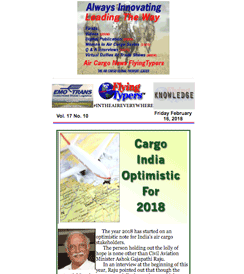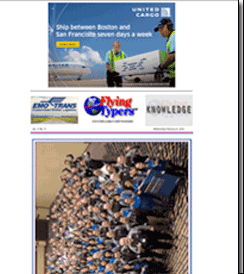|
One thing to look for in Dallas this week
is consideration by the Cargo Agency Conference (CAC) of Policy Item P-2
& Voting Item V-2, which is a new Global Model for the CASS Associate
Program that could have a monumental impact on thousands of forwarders
worldwide.
Background
Of CASS
When the airlines first thought to establish
a billing and settlement platform for accredited forwarders (similar to
the BSP already operating on the passenger side), they negotiated country
by country with the recognized national forwarding association, to set
the terms for the CASS implementation.
Those terms included in part local financial
criteria, financial reviews and security guarantees.
There was also an understanding that the
forwarder association would be informed by IATA of any change to how the
CASS was administered that may effect the forwarder, and such changes
would not be implemented without the association's agreement.
Moving Forward
In Another Time
These were the times when accredited forwarders
enjoyed AD75 reduced travel privileges and received commissions on airfreight
turnover, and therefore the vast majority of the cargo volumes were handled
by accredited forwarders who assumed the responsibility to pay the carrier
any monies due.
Once CASS was implemented, the airlines
realized how significantly their billing and settlement costs had been
reduced.
Through IATA they decided to offer the CASS
billing and settlement platform to those forwarders/intermediaries, who
for whatever reason did not participate in IATA's accreditation program.
This was the CASS Associate program, which
did not require setting any local financial criteria, financial reviews,
or guarantees for applicants.
That because the application was on a bi-lateral
basis, requiring an airline to sponsor a forwarder, that sponsorship allowed
the forwarder credit from its sponsor, and the billing and settlement
process of the CASS. If the forwarder did not pay on time, the sponsoring
airline had to take collection action, not the CASS.
However, once in the program, and once provided
with a CASS account number, other airlines desiring to do business with
that CASS Associate, did not seek to establish a bi-lateral sponsorship,
but simply offered the CASS Associate forwarders air waybill stock, and
happily billed non-sponsored CASS Associates through the CASS system.
Fast Forward
to 2018
With less than 7,000 Accredited forwarders,
versus over 4,000 CASS Associates, the growth and popularity of the CASS
Associate program is evident.
As their numbers grow, so does IATA's interest
in applying stricter financial risk requirements on CASS Associates.
The IATA CASS Policy Group is recommending
adoption in Dallas, of a proposal which will effect all 4000+ CASS Associates,
and in some countries could mean the imposition of 100% Industry Guarantee
for all CASS Associates at all times, with minimum guarantee amounts generally
ranging from US$ 5,000 to US$ 25,000.
The actual amount of guarantee could be
much higher, as it would need to cover up to 70 days, of a CASS Associate's
average turnover.
Also, there remain some significant countries
such as China, Korea and Japan, where the minimum amount has yet to be
determined, however IATA airlines in those countries have suggested that
the minimum guarantee amount be equivalent to USD$ 189,000-USD$ 227,000
and USD$ 442,000 respectively.
With the Cargo Agency Conference meeting
only days away, perhaps the best CASS Associates can hope for is that
those IATA member airlines participating in the vote, will take time to
reflect on the nature of today's air cargo industry.
One solution might be to remove this item
from the agenda.
The reality is that this is 2018 when often
perception is everything.
Perhaps IATA might consider that no association
should allow its members to meet behind closed doors.
It is certainly time for change, but we
need forward thinking change.
Being inclusionary needs to be the first
rule here, we think.
Geoffrey |




 Vol.
17 No. 10
Vol.
17 No. 10